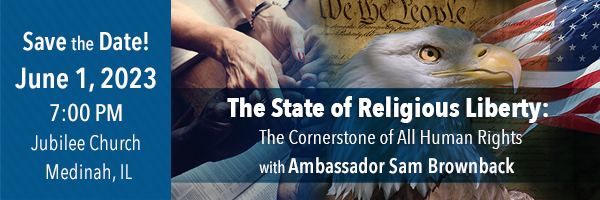God, The Perfectionist
God is loving, we are told, and thus accepts us as we are. The idea that God will judge people for their sins is now so unpopular that few are willing to state it publicly, and many pastors have sadly bowed to the pressure to present a palatable God, a doting “Grandpa” who silently approves of His children regardless of their conduct.
If you have been caught up in this heresy, I warn you to retreat to truth. God not only has a much higher standard of righteousness than we do, His standard is absolute perfection!
Many years ago, I spoke with a friend, a biblical counselor, regarding the problem of perfectionism. We have all dealt with perfectionists. They can be demanding at times! Maybe you are one! My friend noted sternly that only God has the right to be a perfectionist for He alone is perfect!
Most of us are not perfectionists, but therein lies a different problem. Because we do not demand perfection from others (how could we as often as we fail?), we assume that God does not demand perfection from us. But He does! Matthew 5:48 reads, “Be ye therefore perfect, even as your Father which is in heaven is perfect” (KJV). No, He does not expect perfection immediately, but do not confuse His patience with tolerance. At some point, we will be brought individually to account for every time we fail to match His perfect righteousness and holiness. That ought to be very troubling to us!
God’s perfection is related to, among other things, His holiness, righteousness, and justice. In all of His eternal existence God has never varied from absolute perfection. He has never erred in even the smallest way. And being Creator and Steward of the universe, He takes responsibility for everything that happens within its boundaries, which means that we all must live by His rules.
Our failure to match God’s perfections has an important moral element. It is not just that we are not as strong or intelligent as God is, we adamantly refuse to do His will! Every human act is tainted by self-will rather than God service. Scriptures declare that “the heart is deceitful above all things, and desperately wicked,” (Jer. 17:9, NKJV). The sad tale of mankind’s history is sufficient proof of this! Everything we do is unsatisfactory to God!
Some philosophers have reasoned that God is so great that He is indifferent to what we do. We neither add to Him nor take away from Him and thus we need not concern ourselves with the issue of our sinfulness. It does seem unreasonable (to us) that God would care about what insignificant beings like us do. However, it is due to His infiniteness that these things do matter. Acts large or small to us are identical in scale to Him. His infiniteness extends both directions on the linear scale.
God is not just infinitely greater than we humans. As Creator and Sustainer of the universe, He has the moral responsibility to separate from and condemn all who fall short of His holy perfections. He commands, “Be holy for I am holy!” Lest I be misunderstood, God cannot wink at human moral failure, which Scripture labels as sin. It is in His eternal constitution to repudiate everything that fails to conform to His holiness. He cannot soften His wrath against it.
In the same way that a company is responsible for the conduct of its employees, God is ultimately responsible for what transpires on planet Earth. Ironically, while He hates wickedness, and has gone to great lengths to expose and oppose it, He is often blamed for the evils that sinners perpetrate day-after-day contrary to His will and word! Because of His grace He is willing to “take the blame” for the moment but understand that such an injustice must and will be corrected. He is blameless!
As Creator He is owed love, allegiance, and submission, yet people have thumbed their noses at Him and rejected His authority and His call on their lives. Mankind’s failure is not only a matter of quantity, it is a failure of quality. It is not that He expects us to accomplish ABC and we are only able to do A and B. Rather, we spurn His commands and do the opposite. He created us to bring glory to Him, but we shame Him instead.
Even we, having created a work of art, literature, or some other accomplishment, expect to get the credit for it. Millions of lawsuits attest to the fact that we do not accept others getting or taking credit for our work! But in our relationship with God, we do worse! We not only fail to give Him the credit (glory) due Him for who He is and what He does, we seek to take His glory to ourselves! We stand in awe of a DaVinci painting, or listen in rapture to a Beethoven symphony, but curse Christ, the God who with a word created the beauty of a sunset, a daffodil, and the glorious galaxies and seek to take credit for talents and abilities He “loaned” to us!
Glorifying God is not just crediting Him for who He is and what He does. It is matching His moral perfections. He is personally flawless and demands the same from His creation for which He is responsible. He can tolerate no flaws in His universe. Our every sin is a blight on His name and reputation and must be corrected. He will not forever take the blame for our conduct, nor will He allow others to claim credit for His gracious acts. Ultimately, He will set the record straight.
If there were aliens from other galaxies (and there are not), but if there were and they visited planet Earth, they might well ask, “Who is responsible for this horrific mess?” A casual observer may blame God, but that conclusion would not stand. Every broken heart, every dark blot on creation derives from the failure of created beings, not the Creator. You and I cannot escape our accountability. We must come to terms with God.
If you love God, you are offended by that which offends God, and you want His good name cleared. You look with great expectation to the day when He will set the record straight and the guilty parties will be punished. If you do not love God, I warn you that the days of evading your responsibility will have an end.
Judgement day is coming! You may believe you can avoid God forever, but the Bible states that there will be a day when “every knee shall bow. . . and every tongue confess that Jesus Christ is Lord,” (Phil. 2:10-11, NKJV). This includes every soul in Heaven, Earth, and Hell. And the standard by which each will be measured will not be one of their own devising, but rather the perfections of Jesus Christ!
In moments of quietness, when you have found yourself examining your own heart, you know that God’s word is true: you stand guilty. We all stand guilty, not of mere incompetence, but of rebellion! This fact is born out not only in our consciences, but in the dark and bloody history of humanity. Rejecting this truth would be understandable if there were no escape from the resultant condemnation. Denial is a common coping mechanism for those who have no hope.
But there is hope! Wonderful hope! And it only requires our acknowledgement of the truth, turning from sin (confession) and an acceptance of God’s forgiveness purchased by Christ on the cross! And His forgiveness does more than simply wash away our sin. It changes us! First Corinthians 15:51 says that “we shall be changed,” and texts like Psalm 17:15 and I John 3:2 declare what that change entails: “We shall be like Him!” We will be rendered perfect just as He is perfect!
Which brings us to the other side to this coin. Because God is perfect, He will and must keep His word! He said he would judge sinners, so He will. But He also, as early as Genesis 3:16, promised to provide a Savior, and He has done just that! While His perfections doom all who fall short of them, His perfections also provide grace to all who come under the shadow of His wings!
How can you say no?

